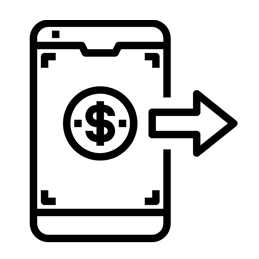Budgeting for Travel in Ghana: Navigating the Ghanaian Cedi
If you’re planning a trip to Ghana, it’s essential to understand the local currency, the Ghanaian Cedi (GHS), and effectively manage your budget. Here are some tips to help you navigate the Ghanaian Cedi and budget for your travel expenses:
-
Familiarize Yourself with the Currency:
- Get acquainted with the various denominations of Ghanaian Cedi banknotes and coins. This will help you handle cash transactions more easily and avoid confusion.
- Pay attention to the security features of the currency to avoid counterfeit notes. Look for watermarks, security threads, and raised printing when receiving or exchanging cash.
-
Exchange Currency:
- Exchange your currency to Ghanaian Cedis at authorized currency exchange bureaus, banks, or reputable hotels. Compare exchange rates to ensure you get the best value for your money.
- It’s a good idea to carry some cash in Ghanaian Cedis for small purchases, transportation, and places that may not accept card payments.
-
Plan a Realistic Budget:
- Research and estimate your travel expenses, including accommodation, meals, transportation, attractions, and other activities. Consider both fixed costs (such as accommodation) and variable costs (such as meals and shopping).
- Take into account the duration of your stay and the regions you plan to visit, as prices can vary across different locations in Ghana.
-
Accommodation and Dining Options:
- Accommodation: Determine your preferred level of comfort and research accommodation options that fit your budget. There are a variety of choices available, ranging from budget guesthouses to luxury hotels.
- Dining: Plan your meals based on your budget. Ghana offers a diverse range of food options, including local street food and restaurants serving both local and international cuisine. Sampling street food can be a cost-effective way to experience Ghanaian flavors.
-
Transportation:
- Public Transportation: Utilize Ghana’s public transportation system, such as buses and tro-tros (shared minivans), to save on transportation costs. These options are generally more affordable compared to taxis or private car rentals.
- Inter-city Travel: If you plan to travel between cities or regions, consider the cost of bus or domestic flight tickets. Compare prices and book in advance to secure better deals.
-
Activities and Attractions:
- Research the entrance fees, tickets, and costs associated with the activities and attractions you wish to experience in Ghana. Some attractions may have discounted rates for students or group bookings, so inquire about any available discounts.
-
Miscellaneous Expenses:
- Factor in additional expenses such as travel insurance, visas (if applicable), souvenirs, and any unexpected costs that may arise during your trip. Having a contingency fund is advisable for emergencies or unforeseen circumstances.
-
Payment Options:
- Carry a mix of cash and internationally accepted debit or credit cards for payment flexibility. Inform your bank about your travel plans to avoid any card issues while abroad.
- Mobile money services, such as MTN Mobile Money or Vodafone Cash, are popular in Ghana and can be used for some transactions and payments.
-
Track Your Expenses:
- Keep a record of your expenditures to monitor your spending and ensure you stay within your budget. This can help you adjust your spending habits if needed.
By understanding the Ghanaian Cedi and implementing these budgeting tips, you can effectively manage your expenses and make the most of your travel experience in Ghana. Enjoy your trip!
Related Pages:
Send Money
The future of financial transactions and many more all at your fingertips.
Data Protection
RemitM is registered with the Information Commissioner’s Office (ICO), the UK’s independent authority set up to uphold information rights in the public interest.
You can visit the ICO website to learn more about data protection or search the ICO register to view details of Remitm’s registration (Registration Number: ZA526026)
Client Funds
All clients’ funds are held in a dedicated client account separate from RemitM’s funds, in line with our regulatory framework and consistent with good practice.
We earn no interest from holding client funds, as your payments and transfers are not held by us and are remitted to recipients upon receipt.
Online Security
Your data is transmitted in a secure way and all password data is encrypted.



